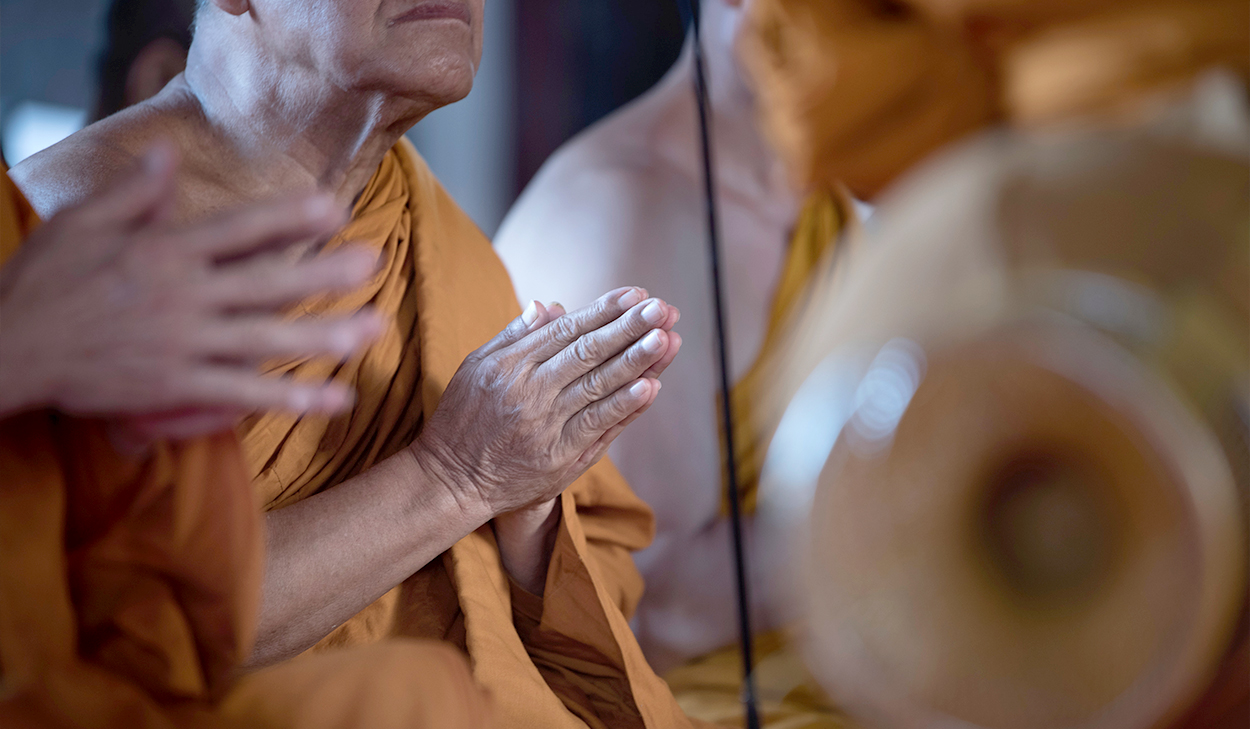
The Buddhist religious calendar follows a lunar path, with dates built around the religious holidays. One of these major holidays is Vesak (also known as Wesak), which is considered the holiest day of the year for the Buddhist faith. This day falls on the full moon day of the lunar month Vesakha, which generally falls in April or May. Because of its importance, Vesak is often a public holiday throughout Southeast Asia.
What is Vesak?
Buddha is considered to be the leader and founder of Buddhism. His many sermons, ideas, and livelihood are pointed to as the pinnacle of the Buddhist faith. This Vesak celebration is set aside as a day of remembrance and commemoration of Buddha, honoring his birth, enlightenment, and eventual death.
Buddha is believed to have been a man born into a wealthy family in the fifth century B.C. He is believed to have had a wife and son, and then—after having an experience with the poor community living around him— he recognized that wealth and worldly success was not going to bring him happiness. Because of this, he decided to leave his family and travel until he found fulfillment for his life. After a long period of searching, he is said to have meditated under a tree until he found enlightenment. He spent the rest of his life traveling and sharing what he learned with the people around him.
On the day of Vesak, Buddhist followers spend their time honoring this religious leader by listening to sermons, doing good deeds, and spending time with family, friends, and their religious community. Many people will go to their temples and will listen to sermons created by either Buddhist leaders or from Buddha himself.
Followers will bring offerings that resemble things of this world that can pass away, signifying the importance of avoiding earthly things and moving more toward spiritual freedom. Individuals will often then participate in candlelight processionals, which in some countries are so large that they constitute a parade throughout the major parts of cities. Buddhists will also engage in acts of kindness and community-building, as well as practice financial generosity. These charitable acts are meant to remind Buddhist followers of the importance of caring for others and of giving up worldly comfort for the betterment of their community.
Gospel Opportunity
There are a few similarities between this Buddhist holiday and practices in the Christian faith. For example, one of the other common acts of celebration on the day of Vesak is to take a Buddha statue outside and to sprinkle it with water. The ceremony is referred to as “bathing the Buddha” and is performed as a way to show respect to the leader and celebrate new beginnings. It’s done in reference to Buddha’s birth, which legend states included Buddha claiming his authority and then being showered by water and serpents from the sky. This is a lot like Jesus’s baptism, but instead of serpents and self-proclamations, Jesus was honored by God Himself.
“As soon as Jesus was baptized, he went up out of the water. At that moment heaven was opened, and he saw the Spirit of God descending like a dove and alighting on him. And a voice from heaven said, ‘This is my Son, whom I love; with him I am well pleased.” -Matthew 3:16-17
Furthermore, whether Vesak is celebrated in April or May, it closely coincides with a major holiday in the Christian faith: Easter. On this day, Christians celebrate the death and resurrection of Jesus Christ and recognize that through His ultimate sacrifice, believers are given freedom and joy to be able to spend eternity with Him in Heaven. As Christians, we’re blessed in knowing that through our faith in Jesus, even though we could never earn salvation on our own, it has been secured for us through the work of Christ. This lies in stark contrast to the Buddhist faith, which teaches that you must practice good living continually through multiple lives until you get it right; once this occurs, a spirit experiences nirvana, or release from this cycle of rebirth.
We know that through Jesus, we are freed from this striving toward perfection because it has already been given to us.
“For it is by grace you have been saved, through faith—and this is not from yourselves, it is the gift of God – not by works, so that no one can boast.” -Ephesians 2:8-9
During this time, share these points with Buddhist friends and talk to them about the free gift of salvation that we receive through Jesus. Discuss the relief it is that through His death, we are given life, and how this makes the celebration of Him that much sweeter!